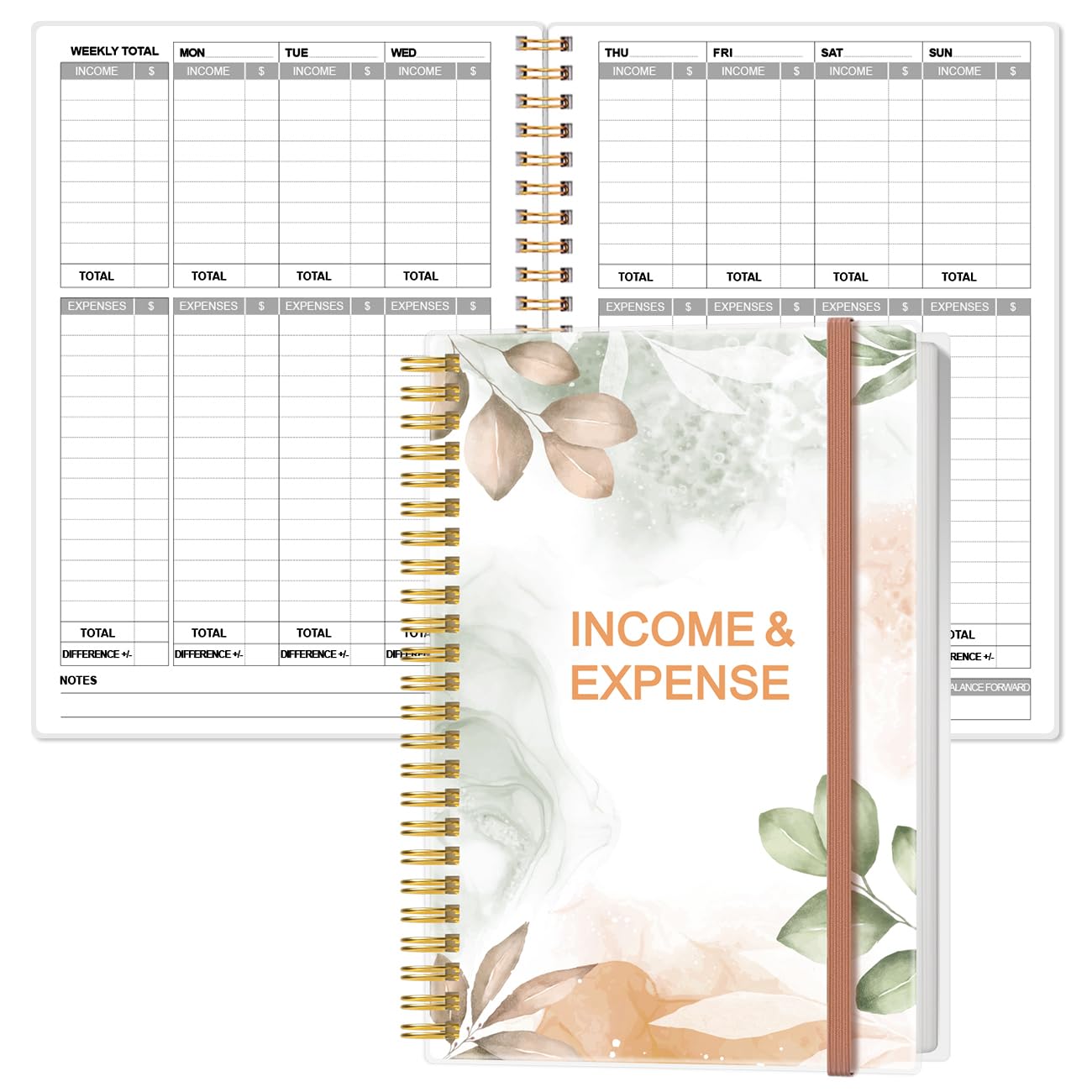Tracking your expenses is one of the smartest moves you can make for your small business. When you know exactly where your money is going, you gain control, reduce stress, and uncover opportunities to save and grow.
But if you’re feeling overwhelmed by receipts, bills, and spreadsheets, don’t worry—you’re not alone. You’ll discover simple, practical ways to track your expenses without wasting time or energy. By the end, you’ll have clear steps to manage your finances like a pro and keep your business on the path to success.
Ready to take charge of your money? Let’s dive in.

Credit: www.youtube.com
Set Up An Expense Tracking System
Setting up an expense tracking system is vital for small businesses. It helps keep spending clear and organized. This system saves time and avoids mistakes. It also shows where money goes and helps control costs.
Choose The Right Tools
Pick tools that fit your business size and type. Simple spreadsheets work well for small setups. Expense tracking apps offer automation and easy data entry. Look for tools that sync with your bank accounts. Choose options with clear reports to review spending fast.
Organize Receipts And Invoices
Keep all receipts and invoices in one place. Use folders, envelopes, or digital scans to store them. Label each with date, amount, and purpose. This makes it easy to find documents later. Organized records help with taxes and audits.
Categorize Your Expenses
Categorizing your expenses is a key step in managing small business finances. It helps you see where your money goes. This makes budgeting easier and tax time less stressful. Clear categories give you a quick overview of spending patterns. They also help spot areas to cut costs or invest more.
Create Clear Expense Categories
Start by listing all types of expenses in your business. Group similar costs together. Examples include office supplies, travel, marketing, and utilities. Keep categories simple and distinct. Avoid too many small groups that confuse tracking. Use broad categories at first, then add subcategories if needed. This system helps you organize receipts and invoices neatly.
Separate Personal And Business Costs
Mixing personal and business expenses causes confusion and errors. Use separate bank accounts and credit cards for business spending. Track only business costs under your expense categories. Personal expenses should never be recorded as business costs. This separation keeps your records clean and accurate. It also helps during tax filing and audits. Clear boundaries protect your business finances and save time.
Record Expenses Regularly
Recording expenses regularly is vital for small business success. It helps track spending and control budgets. Regular tracking avoids missing important costs. It also provides clear financial insights. This practice supports better decisions and smooth tax processes.
Establish A Routine
Set a specific time daily or weekly to record expenses. Consistency builds good habits. Choose a quiet time to focus. Use reminders or alarms to stay on track. Small, regular updates prevent backlog and errors. This routine keeps your records accurate and current.
Use Digital Apps For Real-time Tracking
Digital apps make expense tracking simple and fast. They allow you to enter costs immediately. Upload receipts with photos to save paper. Many apps categorize expenses automatically. Real-time tracking reduces mistakes and forgotten entries. Most apps also generate helpful reports for review.

Credit: www.amazon.in
Review And Analyze Spending
Reviewing and analyzing your spending helps control your business expenses. It shows where your money goes. This step is key to keeping your budget on track. Regular checks help avoid surprises and keep your business healthy.
Identify Spending Patterns
Look at your expenses over time. Notice which costs happen often. Some bills repeat every month, like rent or utilities. Others may change, like supplies or marketing. Tracking these patterns helps predict future spending. It also shows if any costs rise or fall.
Spotting trends helps plan better budgets. It can reveal times when spending spikes. This gives you a chance to prepare or reduce costs.
Spot Areas To Cut Costs
Find expenses that seem too high or unnecessary. Sometimes, small costs add up fast. Review subscriptions, office supplies, or services. See if you can get cheaper options or use less.
Cutting costs frees money for other needs. Focus on expenses that do not help grow your business. Be careful not to cut essential items that affect quality.
Automate Expense Tracking
Automate expense tracking to save time and reduce mistakes. It helps keep your finances organized without manual work. Automation gives a clear view of where your money goes. You can focus more on growing your business.
Connect Bank Accounts And Credit Cards
Link your business bank accounts and credit cards to your expense software. This allows automatic import of transactions. You no longer need to enter each expense by hand. Your records stay up-to-date and accurate.
Most software options support multiple accounts. Choose one that fits your business needs. Secure connections protect your financial data. Check for software with strong encryption and privacy policies.
Set Up Automatic Expense Reports
Create automatic reports that summarize your spending regularly. These reports help track expenses without extra effort. Set daily, weekly, or monthly schedules for reports.
Automatic reports highlight unusual or large expenses. This helps spot errors or fraud quickly. Share reports with your accountant or team easily. It keeps everyone informed and ready to act.
Leverage Expense Data For Budgeting
Tracking expenses is not just about recording costs. It helps small business owners make smart budgets. Expense data gives a clear view of where money goes. Using this information helps plan future spending carefully. It keeps the business on the right financial path.
Create A Realistic Budget
Start with real numbers from past expenses. Use them to set limits for each category. Include rent, supplies, salaries, and marketing costs. Avoid guessing or setting too tight budgets. A realistic budget matches actual spending habits. This helps avoid surprises and keeps cash flow steady.
Adjust Based On Past Spending
Check previous months’ expenses regularly. Look for patterns like rising costs or savings. Change the budget to fit these changes. Cut back on areas with overspending. Increase funds where the business needs more support. This makes the budget flexible and practical.
Prepare For Taxes And Audits
Preparing for taxes and audits is a key step in managing small business expenses. Proper preparation helps avoid stress and penalties. It ensures your financial records are ready for review at any time.
Good preparation also improves business credibility. It shows you follow rules and handle money responsibly. This builds trust with tax authorities and potential investors.
Keep Detailed Records
Keep all receipts, invoices, and bills organized. Use folders or digital tools to store documents safely. Record every expense with date, amount, and purpose.
Track income and payments consistently. Regular updates reduce errors and lost information. Detailed records make tax filing faster and simpler.
Understand Deductible Expenses
Know which expenses lower your taxable income. Common deductible costs include office supplies, travel, and utilities. Check local tax rules for specific deductions.
Separate personal and business expenses clearly. Only business-related costs qualify for deductions. This helps avoid problems during an audit.

Credit: www.youtube.com
Frequently Asked Questions
What Is The Best Method To Track Small Business Expenses?
The best method is using accounting software like QuickBooks or Xero. They automate expense tracking, categorize spending, and generate reports efficiently.
How Often Should I Track My Business Expenses?
Track expenses daily or weekly to stay organized. Frequent tracking prevents errors and helps maintain accurate financial records.
Can I Use Spreadsheets To Track Expenses For My Business?
Yes, spreadsheets like Excel or Google Sheets work well for simple tracking. They allow customization but require manual data entry and updates.
Why Is Tracking Expenses Important For Small Businesses?
Tracking expenses helps monitor cash flow, prepare taxes, and make informed financial decisions. It improves budgeting and identifies cost-saving opportunities.
Conclusion
Tracking expenses helps small businesses stay organized and save money. Use simple tools to record every cost clearly. Check your records often to avoid mistakes and spot trends. Good tracking makes tax time easier and shows where to cut costs.
Keep it regular and simple. Small steps lead to big savings and better business health. Start today and watch your business grow steadily and safely.

